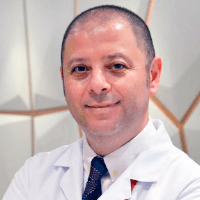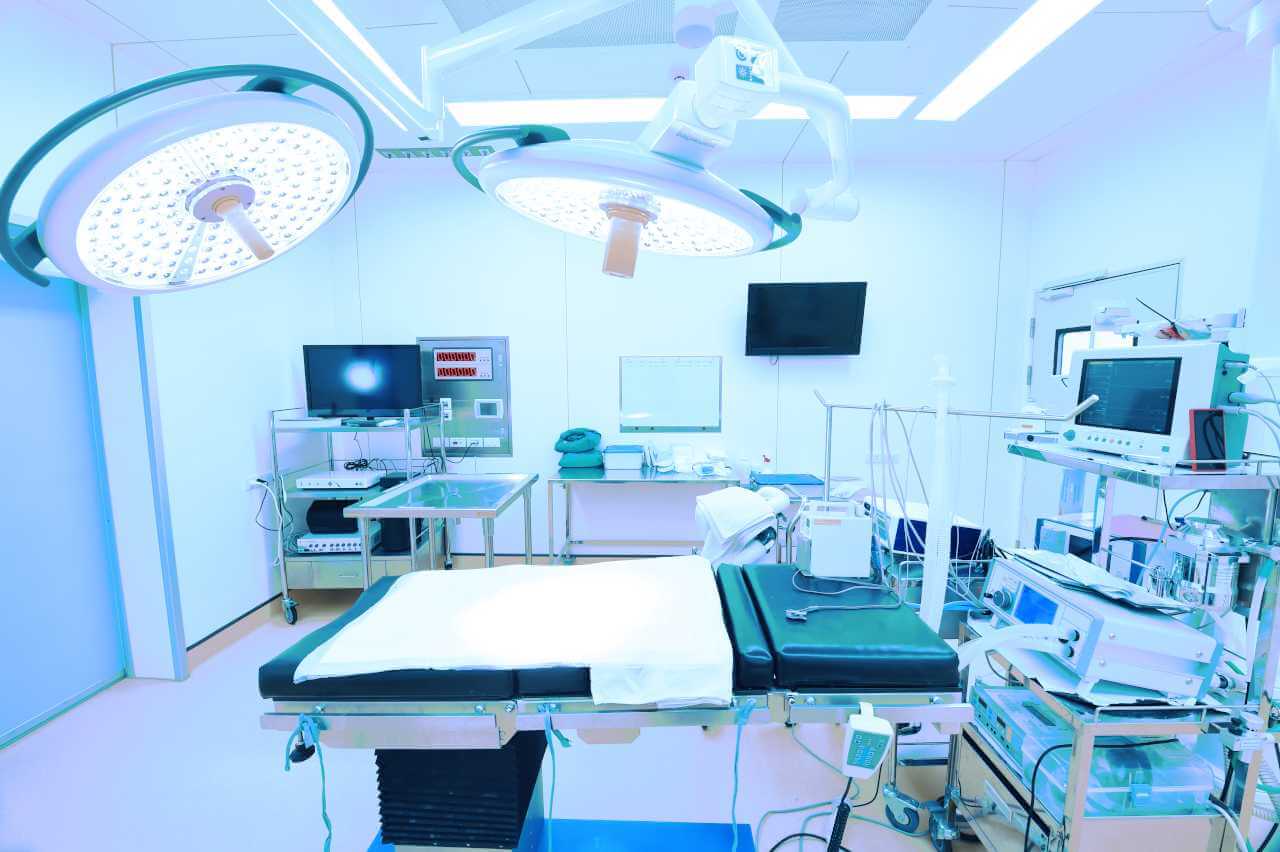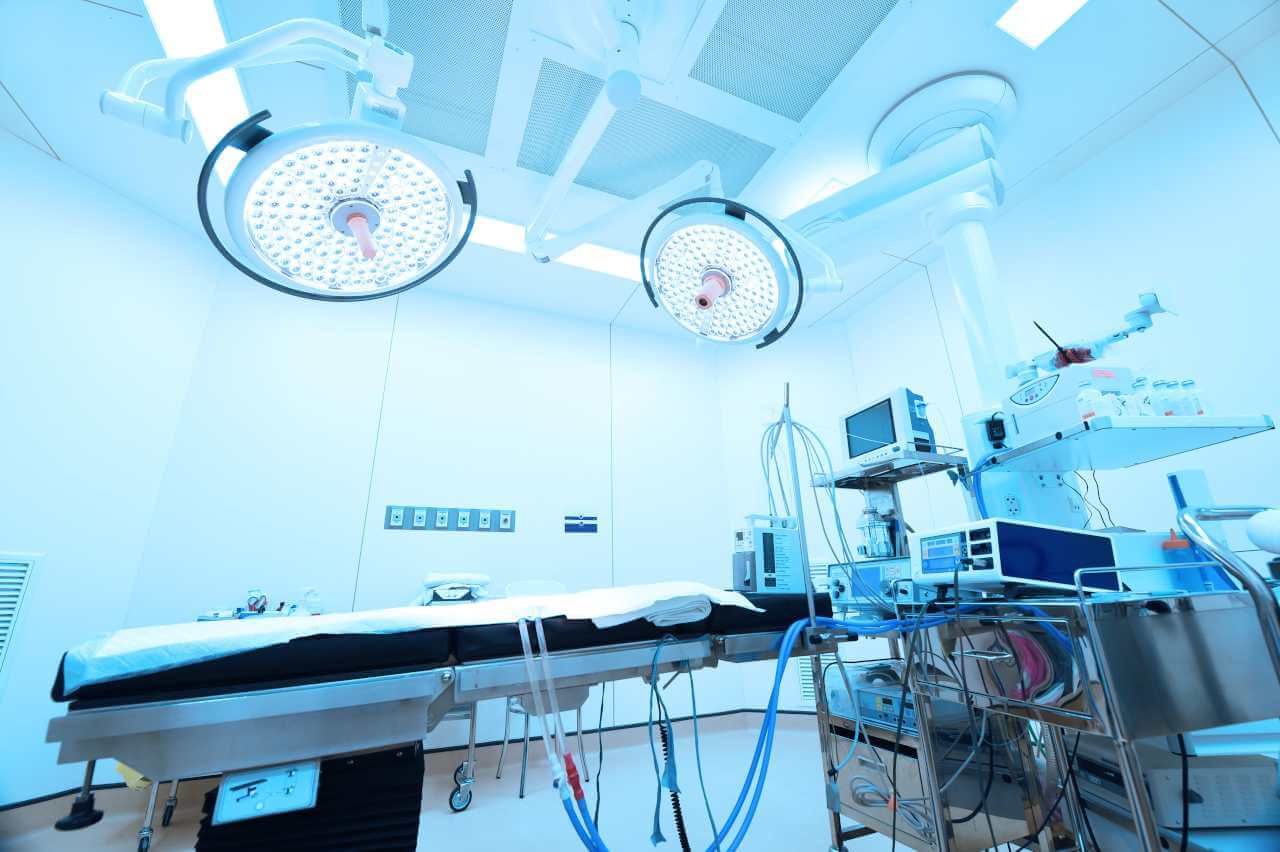
The program includes:
- Initial presentation in the clinic
- case history collection
- general clinical examination
- laboratory tests:
- complete blood count
- biochemical analysis of blood
- TSH-basal, fT3, fT4
- differential blood count
- inflammation indicators (CRP, ESR)
- indicators of blood coagulation
- abdominal ultrasound scan
- CT/MRI scans of the whole body
- needle biopsy of the bone marrow with histological:
- cytochemistry
- immunocytology
- cytogenetics (Philadelphia
chromosome detection) - molecular biology
- biopsy and histological examination of CSF
- examination by experts of:
- cardiology
- otolaryngology
- immunology
- ophthalmology
- registration in the European bone marrow donor base
- conducting high-dose chemotherapy
- allogeneic bone marrow transplantation from
unrelated donor - isolation by neutropenic precautions
- symptomatic treatment
- control examinations
- the cost of essential medicines and materials
- nursing services
- full hospital accommodation
- explanation of future recommendations
How program is carried out
During the first visit, the doctor will conduct a clinical examination and go through the results of the available diagnostic tests. After that, you will undergo the necessary additional examination, such as the assessment of liver and kidney function, ultrasound scan, CT scan and MRI.
Also, the doctor will conduct a bone marrow biopsy followed by cytological examination of the harvested material. This will help him to determine the histological features of your bone marrow (in particular, identify HLA system antigens) and select a suitable donor. The donor can be a family member or a person from the bone marrow registry. In the second case, the donor material is stored in a bone marrow bank.
Before the procedure, you will receive chemotherapy, if necessary in combination with radiation therapy. The course of chemo- or chemoradiation therapy lasts from 2 to 8 days.
The bone marrow transplant procedure is an intravenous infusion, i.e. the healthy bone marrow will be injected through a catheter, intravenously. You will stay in your room during the procedure. A bone marrow transplant is completely painless and does not require anesthesia.
During the period of healthy bone marrow engraftment, you will stay in a sterile ward. This is a necessary precaution because during this time your immune system is very weak and cannot withstand environmental pathogens. The risk of bleeding is also quite high, so you will be advised to avoid mechanical damage.
A relative or other close person may stay in the ward with you. You will not be allowed to go outside the department and leave your ward often. The rehabilitation period can last from 1 to 2 months.
When your complete blood count returns to normal, your doctor will schedule your discharge from the department. You will receive information about the rules that you will need to follow at home, the frequency and type of control examinations, and subsequent treatment measures. You will also receive a detailed medical report, which will reflect the entire course of treatment.
Required documents
- Medical records
- MRI/CT scan (not older than 3 months)
- Bone marrow biopsy results (if available)
Service
You may also book:
 BookingHealth Price from:
BookingHealth Price from:
About the department
The Department of Hematology and Bone Marrow Transplantation at the Memorial Bahçelievler Hospital Istanbul offers the full service range in the field of its specialization. It provides effective treatment for diseases of the bone marrow, lymphatic system, blood and immune systems. The department is particularly competent in the treatment of lymphomas, multiple myeloma, acute and chronic leukemia, as well as in the field of bone marrow transplantation. To achieve a complete cure for patients with hematological diseases or to ensure the stable remission, the department's doctors develop optimal treatment regimens, including drug therapy with the most advanced drugs, antibody therapy, targeted therapy, chemotherapy, radiation therapy and bone marrow transplantation. Medical care is provided by experienced doctors and nurses, for whom the health of their patients is the most valuable thing. The Chief Physician of the department is Prof. Dr. med. Emre Tekgunduz.
The department's clinical practice is focused on the treatment of malignant blood diseases. Hodgkin lymphoma and non-Hodgkin lymphomas are the most common ones. To detect Hodgkin lymphoma, the department's specialists carry out microscopic examination of the lymph node after its removal. The next stages of diagnostics include computed tomography and bone marrow biopsy. The treatment plan is elaborated for each patient individually, in accordance with the stage of the pathology and prognostic factors (risk factors). At the initial stages of the disease, chemotherapy and irradiation (low doses) are sufficient for a complete cure. At the advanced stages of the disease, modern and rather intensive treatment is required. In the case of Hodgkin lymphoma recurrence, the best treatment option is the high-dose chemotherapy and transplantation of autologous (own) stem cells. In the fight against the recurrence of the pathology, the department's doctors most often use the innovative drug Brentuximab vedotin with antibodies.
Non-Hodgkin lymphomas include about 30 diseases with different etiology, progression rate, and symptomatology. In this regard, the department's medical team pays special attention to high-quality diagnostics, including immunohistochemistry, flow cytometry and molecular diagnostic techniques. All subtypes of non-Hodgkin lymphomas are treated with chemotherapy. However, the treatment with antibiotics, without chemotherapy (only in some clinical cases) is possible nowadays. The department's doctors have deep knowledge and extensive experience in accurate determination of the non-Hodgkin lymphoma subtype, as well as in elaboration of the optimal and unique treatment scheme for each patient.
The department's specialists also successfully carry out treatment in such malignant pathologies as multiple myeloma, leukemia, myelodysplastic syndrome, and myeloproliferative diseases. In addition, the department admits patients with benign pathologies (special focus on aplastic anemia and various deteriorations of the immune system).
It should be noted that the department belongs to the leading specialized Bone Marrow Transplantation Centers and meets the international JACIE criteria. This treatment method allows the doctors to cope with life-threatening malignant diseases – multiple myeloma, lymphoma, acute and chronic leukemia. Bone marrow transplantation is also effective for treatment of aplastic anemia. The team of the department's doctors specializes in both autologous and allogeneic transplantations. In the first case, the patient's own stem cells are transplanted, and in the second case – donor cells (from related and unrelated donors). In order to harvest stem cells, the department's doctors use the apheresis procedure. Stem cells are transferred via vascular access – the cells find the bone marrow, fixe in it and initiate the production of blood cells. Thus, bone marrow transplantation is performed without any surgical manipulations, which is an undeniable advantage for the patient. The key stage of the treatment is the accurate monitoring of the patient’s state after the procedure in order to prevent anemia, infections and haemorrhages.
The department's range of medical services includes:
- Diagnostics and treatment of Hodgkin lymphoma
- Diagnostics and treatment of non-Hodgkin lymphomas
- Diagnostics and treatment of multiple myeloma
- Diagnostics and treatment of leukemia
- Acute myeloid leukemia (AML)
- Acute lymphoblastic leukemia (ALL)
- Chronic lymphocytic leukemia (CLL)
- Chronic myeloid leukemia (CML)
- Diagnostics and treatment of myelodysplastic syndrome
- Diagnostics and treatment of myeloproliferative disorders
- Diagnostics and treatment of anemias
- Diagnostics and treatment of functional and quantitative abnormalities of leukocytes, erythrocytes and platelets
- Diagnostics and treatment of blood-clotting disorders
- Diagnostics and treatment of deteriorations of the immune system
- Bone marrow transplantation
- Autologous bone marrow transplantation (patient's own stem cells)
- Allogeneic bone marrow transplantation (donor stem cells)
- Other medical services
Curriculum vitae
Professional Career
- Since 2018 Head of the Department of Hematology and Bone Marrow Transplantation at the Memorial Bahçelievler Hospital Istanbul.
- 2012 - 2017 Deputy Head of the Department of Hematology and Bone Marrow Transplantation at the Cancer Clinic in Ankara.
- 2009 - 2018 Medical Specialist in Internal Diseases and Hematology, Department of Hematology and Bone Marrow Transplantation at the Cancer Clinic in Ankara.
- 2004 - 2009 Medical Specialist in Internal Diseases, Section of Internal Medicine, Section of Hematology, Faculty of Medicine at the Trakia University.
- 1999 - 2003 Medical Specialist in Internal Diseases, Department of Internal Medicine, Cerrahpaşa Faculty of Medicine at the Istanbul University.
Higher Education and Postgraduate Training
- 2004 - 2009 Training for becoming Medical Specialist in Hematology, Department of Internal Medicine, Section of Hematology, Faculty of Medicine at the Trakia University.
- 1999 - 2003 Training for becoming Medical Specialist in Internal Medicine, Department of Internal Medicine, Cerrahpaşa Faculty of Medicine at the Istanbul University.
- 1992 - 1998 Study of Human Medicine, Faculty of Medicine at the Istanbul University.
Scientific Publications
- 72 scientific publications in national and international journals.
- 42 reports at international congresses.
- 125 reports at national congresses.
Participation in Congresses, Courses and Symposia
- Participation in over 20 international and over 50 national congresses, courses and symposia.
Memberships in Professional Societies
- Turkish Society of Hematology.
- Turkish Society of Apheresis.
- Bone Marrow Transplantation Society.
- Society of Hematologic Oncology.
- European Hematology Association.
Photo of the doctor: (c) Memorial Bahçelievler Hospital
About hospital
The Memorial Bahçelievler Hospital Istanbul is an advanced multidisciplinary medical center that began its clinical practice in 2018. It is part of the world famous Memorial Healthcare Group. The hospital was designed in accordance with the very latest standards of modern architecture with the aim of providing top-class medical services in a pleasant and patient-oriented environment. It is worth noting that the interior of the medical facility is full of live plants, which have a positive impact on people and their mood. The hospital is awarded the prestigious LEED Platinum Certificate, confirming the highest level of environmental friendliness and safety of the buildings of the medical complex.
The hospital has 320 beds for patient hospitalization. The medical and technical base of the hospital is one of the best and most advanced in Turkey – modern diagnostic rooms with MRI, CT, PET-CT scanners, gamma cameras, X-ray equipment, mammography systems and other equipment, 15 operating rooms, including for robot-assisted, endoscopic and hybrid surgical interventions, intensive care units, etc. The hospital also has a high-performance state-of-the-art Elekta Versa HD SIGNATURE system for radiation therapy.
The powerful technical resources of the hospital are complemented by a highly professional medical staff, who have achieved significant success not only at the national level, but also in the international medical arena. The doctors and nursing staff of the hospital are distinguished by excellent medical qualifications, as well as humane and compassionate attitude towards each patient. They strongly support their patients on their way to recovery.
The medical center admits not only Turkish citizens for treatment, but also patients from 92 countries of the world, and therefore it boasts a wealth of experience in serving international patients with clinical cases of varying complexity.
Photo: (c) Memorial Bahçelievler Hospital, (c) depositphotos
Accommodation in hospital
Patients rooms
The patients of the Memorial Bahçelievler Hospital Istanbul live in cozy rooms with an excellent layout and modern design. The standard patient rooms are equipped with a comfortable automatically adjustable bed, a bedside table, a table and a chair, a wardrobe, a sofa for receiving visitors. The patient room also includes a TV, a telephone and Wi-Fi. Each room has an ensuite bathroom with shower and toilet. The hospital also provides patients with enhanced-comfort rooms corresponding to a five-star hotel.
Meals and Menus
The patient and the accompanying person are offered tasty and balanced three meals a day. If for some reason you do not eat all foods, you will be offered an individual menu. Please inform the medical staff about your food preferences prior to treatment.
Further details
Standard rooms include:
Accompanying person
During the inpatient program, the accompanying person can live with the patient in a patient room or a hotel of his choice. Our managers will help you choose the most suitable option.
Hotel
During an outpatient program, the patient can stay at the hotel of his choice. Our managers will help you choose the most suitable option.




